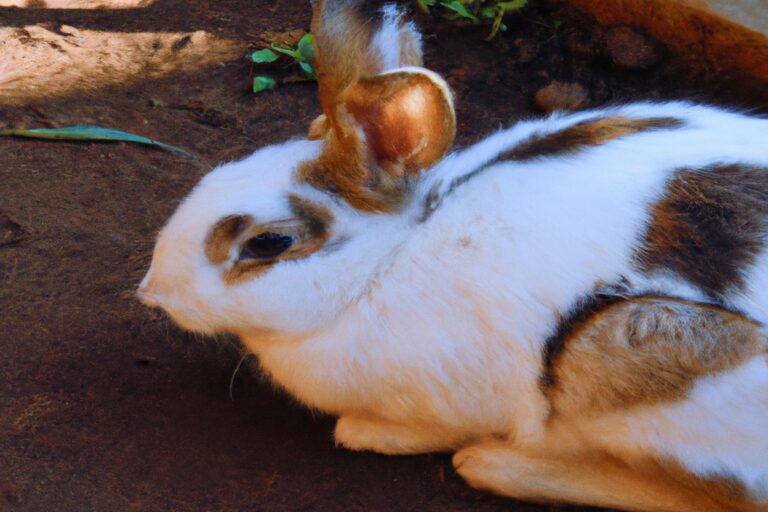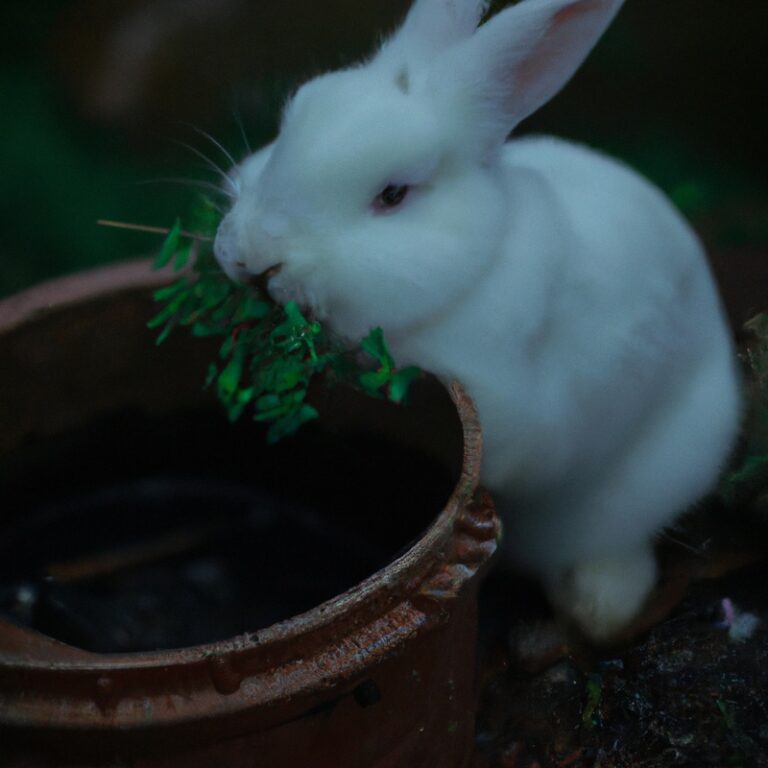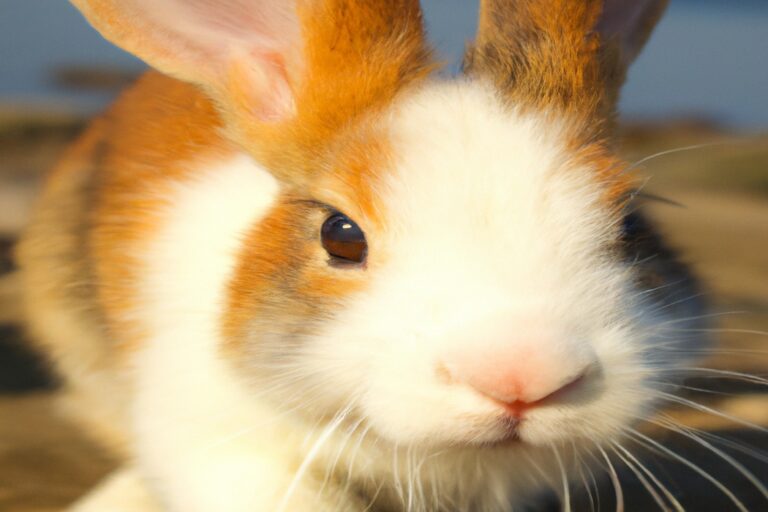How To Help a Rabbit In Shock – Essential Tips
Key Takeaways:
- Provide a calm and quiet environment for the rabbit to recover.
- Keep the rabbit warm by covering them with a blanket or towel.
- Do not offer any food or water to the rabbit until they have fully recovered.
- Seek immediate veterinary assistance for the rabbit to ensure proper and prompt treatment.
Have you ever witnessed a rabbit in shock?
It can be a distressing sight, as these gentle creatures are extremely sensitive.
Whether it’s due to injury, illness, or a sudden fright, shock can have serious consequences for a rabbit’s well-being.
As someone who cares about these furry friends, it’s crucial to know how to provide immediate assistance.
In this article, we’ll dive into the world of rabbit shock: what it is, what causes it, and how to recognize the signs.
We’ll also explore the steps you can take to help a rabbit in shock, from creating a calm environment to administering first aid.
And, of course, we’ll discuss preventive measures to keep your beloved bunnies safe.
So, if you’ve ever wondered how to lend a helping hand to a rabbit in crisis, keep reading!
| Step | Description |
| 1 | Find a quiet and calm area for the rabbit |
| 2 | Check for any obvious injuries or bleeding |
| 3 | Wrap the rabbit in a soft towel or blanket to keep it warm |
| 4 | Keep the rabbit still and limit its movements |
| 5 | Contact a veterinarian for further guidance |
| 6 | Administer first aid if necessary, following veterinarian instructions |
| 7 | Monitor the rabbit’s vital signs such as breathing and heart rate |
| 8 | Provide supportive care, such as offering water or a small amount of food |
| 9 | Keep noise and stimulation to a minimum |
| 10 | Stay with the rabbit and offer comfort until veterinary assistance is available |
Understanding Rabbit Shock
Understanding Rabbit Shock: A brief insight into what shock is and how it affects rabbits.
What is shock?
Shock is a serious medical condition that occurs when the body’s vital organs do not receive enough blood and oxygen to function properly.
It can be caused by various factors, such as severe injury, severe bleeding, infection, or allergic reaction.
Common symptoms of shock include rapid breathing, weak pulse, pale or cool skin, confusion, and loss of consciousness.
It is important to seek immediate medical attention if someone is in shock, as it can be life-threatening.
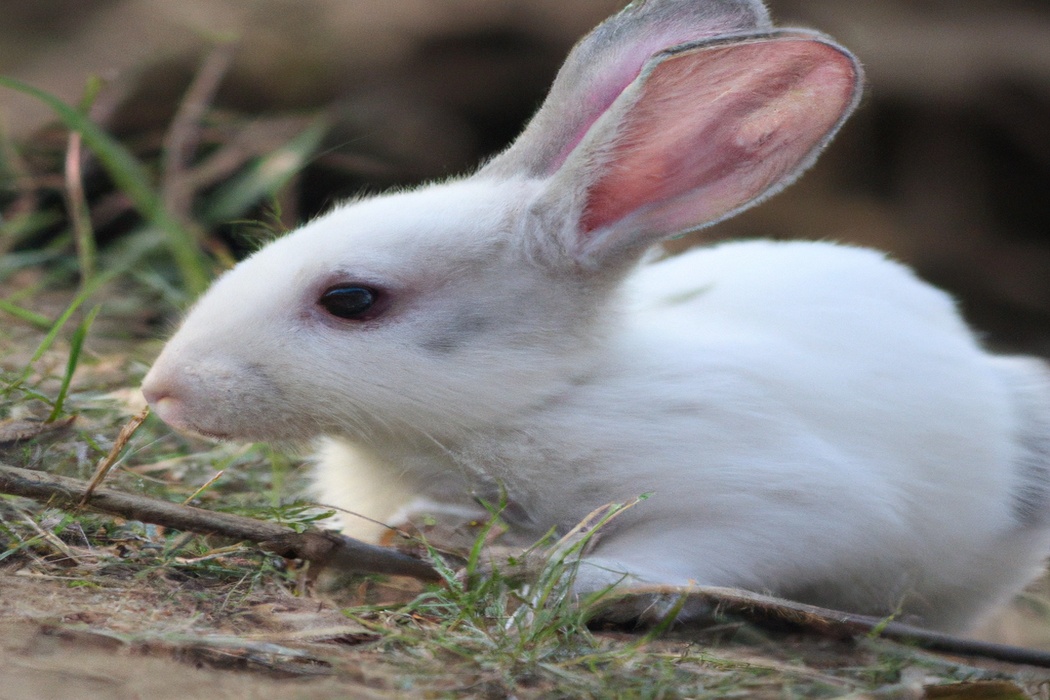
Causes of shock in rabbits
Shock in rabbits can be caused by several factors, including:
- Trauma: Any kind of physical injury, such as falls or being attacked by predators, can lead to shock in rabbits.
- Heatstroke: Rabbits are highly sensitive to heat and can experience shock if exposed to high temperatures for extended periods.
- Illness or infection: Serious illnesses or severe infections can result in shock as the body tries to fight off the disease.
- Blood loss: Excessive bleeding, such as from injuries or internal hemorrhages, can cause shock by depriving the body of essential fluids.
- Toxicity: Ingesting toxic substances, including certain plants or chemicals, can lead to shock in rabbits.
It is important to seek immediate veterinary attention if you suspect your rabbit is in shock, as prompt treatment is vital for their recovery.
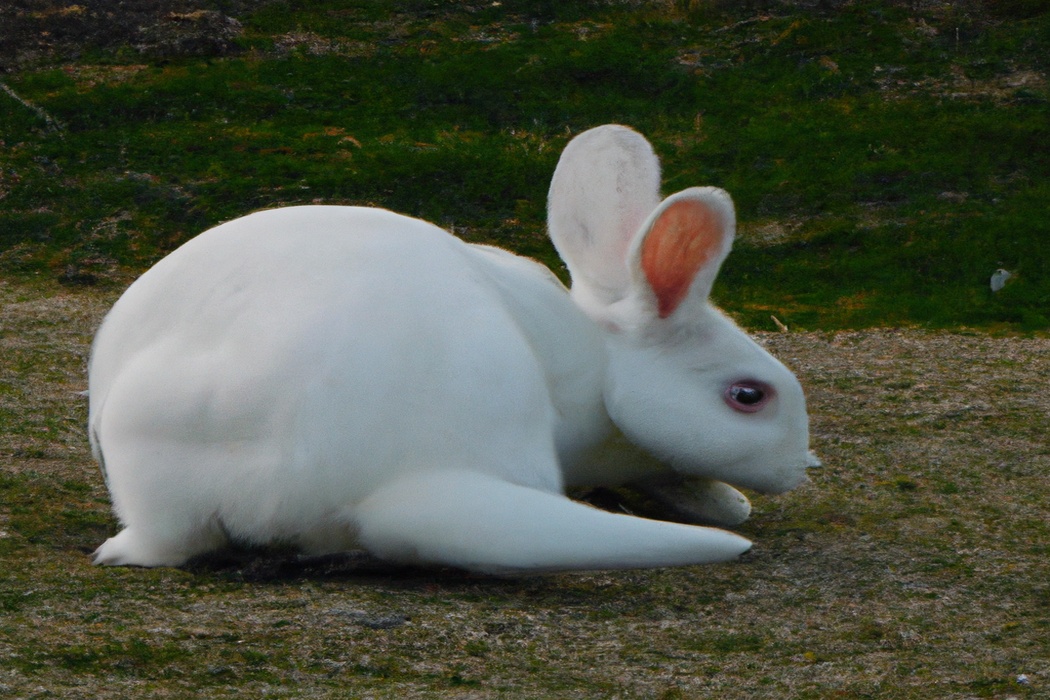
Recognizing the signs of shock in rabbits
Recognizing the signs of shock in rabbits is crucial for their wellbeing. Some common signs include rapid breathing, pale gums, weak or nonexistent pulse, low body temperature, and lethargy.
In addition, rabbits in shock may have dilated pupils, decreased urine production, and may go into a state of collapse.
It’s important to act quickly if you suspect your rabbit is in shock and seek immediate veterinary assistance. Providing a quiet, warm, and stress-free environment for your rabbit during this time is essential.
Immediate Steps to Help a Rabbit in Shock
Assess the situation, create a calm and quiet environment, and check and stabilize the rabbit’s vital signs as immediate steps to help a rabbit in shock.
Assessing the situation
Assessing the situation is the first step when helping a rabbit in shock.
Start by observing the rabbit’s behavior – is it lethargic, trembling, or unresponsive?
Check for any visible injuries or bleeding.
Assess the rabbit’s vital signs, such as heart rate and breathing.
Pay attention to its body temperature.
It’s important to remain calm and gentle during this process.
Once you have assessed the situation, you can determine the best course of action to help the rabbit.
Creating a calm and quiet environment
To create a calm and quiet environment for a rabbit in shock, there are a few things you can do.
First, find a quiet and secluded area where the rabbit can feel safe.
Remove any loud noises or sudden movements that may startle the rabbit further.
Dim the lights to create a soothing atmosphere.
Ensure the temperature is comfortable and there’s adequate ventilation.
Use soft materials, like blankets or towels, for bedding to provide a cozy spot.
Lastly, limit human interaction to allow the rabbit to calm down and recover.

Checking and stabilizing the rabbit’s vital signs
To check and stabilize a rabbit’s vital signs, start by assessing its breathing.
Listen for any abnormal sounds or rapid breathing.
Check the heart rate by feeling its pulse near the jawline or on the hind leg.
Ensure the rabbit has a normal body temperature by feeling its ears or using a rectal thermometer.
If necessary, provide gentle warmth and keep the rabbit calm and quiet.
Lastly, monitor the rabbit closely and consult a veterinarian as soon as possible for further assistance.
Providing First Aid for a Rabbit in Shock
To provide first aid for a rabbit in shock, focus on keeping the rabbit warm, contacting a veterinarian, and administering oral or injectable fluids as directed by a vet.
Keeping the rabbit warm
To keep a rabbit warm, it is important to provide a comfortable environment.
Place the rabbit in a warm, draft-free area.
Use blankets or towels to create a cozy bedding.
You can also use a heating pad set on low, but be sure to cover it with a blanket to prevent direct contact with the rabbit’s skin.
Monitor the rabbit closely to ensure it does not become too hot or too cold.
Contacting a veterinarian
If your rabbit is in shock, contacting a veterinarian is essential.
A veterinarian has the expertise and resources to provide the best care for your rabbit’s condition.
They can assess the severity of the shock, administer appropriate treatment, and offer further guidance.
To contact a veterinarian, look up the nearest veterinary clinic or emergency animal hospital and call them immediately.
Explain the situation and follow their instructions carefully to ensure your rabbit gets the help it needs.
Time is of the essence, so don’t hesitate to seek professional assistance.
Administering oral or injectable fluids as directed by a vet
Administering oral or injectable fluids as directed by a vet is crucial in helping a rabbit in shock. You need to follow the vet’s instructions carefully to ensure the correct administration.
For oral fluids, you may need to use a syringe or a dropper to give the fluids to the rabbit.
Injectable fluids, on the other hand, require proper knowledge and technique to avoid any complications. It’s important to seek professional advice and guidance for this procedure.
Remember, the vet’s instructions are essential in ensuring the rabbit’s recovery.
Preventive Measures to Avoid Rabbit Shock
To prevent rabbit shock, ensure rabbit-safe housing, regular health check-ups, and handle them with care.
Rabbit-safe housing and environmental conditions
One vital factor in ensuring the well-being of pet rabbits is to provide them with a safe and suitable housing environment.
Here are some key points to consider:
- Space: Rabbits need ample space to hop, stretch, and play. Provide a sufficiently large enclosure or hutch that allows them to exhibit natural behaviors.
- Ventilation: Good air circulation is crucial for a healthy rabbit. Ensure the housing has proper ventilation to prevent the buildup of ammonia and other harmful gases.
- Flooring: Avoid wire or mesh flooring, as it can cause foot injuries. Opt for solid surfaces covered with a soft layer of bedding to keep their paws comfortable.
- Temperature control: Rabbits are sensitive to extreme temperatures. Keep their housing in a well-insulated area, away from direct sunlight or drafts. Use bedding and heat pads in colder months.
- Chew-proofing: Rabbits love to chew, which can be dangerous if they have access to electrical cords or toxic substances. Rabbit-proof the area by securing wires and removing toxic plants or chemicals.
Remember, providing a safe and comfortable living environment is essential for maintaining a happy and healthy rabbit.
Regular health check-ups
Regular health check-ups are essential to ensure the well-being of your rabbit.
During these check-ups, a veterinarian will examine your rabbit’s overall health, including their eyes, ears, teeth, and weight.
They may also perform necessary vaccinations and deworming.
Additionally, regular check-ups allow the vet to detect any potential health issues early on, increasing the chances of successful treatment.
Making a habit of scheduling these check-ups will help keep your bunny in good health and catch any problems early.
Your veterinarian can provide specific recommendations based on your rabbit’s breed and age.
Handling rabbits with care
Handling rabbits with care is essential for their well-being.
When interacting with rabbits, approach them gently, avoiding sudden movements or loud noises.
Always support their hindquarters when lifting or carrying them to prevent injury.
Avoid picking them up by their ears as this can cause pain and discomfort.
Provide a safe and secure environment for them to explore, ensuring wires and toxic plants are out of reach.
Regularly monitor their health and behavior, and seek veterinary care if any concerns arise.
Remember, a calm and comforting approach is key to ensuring your rabbit’s safety and happiness.
Frequently Asked Questions about Rabbit Shock
Can stress cause shock in rabbits?
Yes, stress can indeed cause shock in rabbits.
When rabbits experience high levels of stress, it can lead to a condition called “stasis,” where their digestive system shuts down.
This can result in a range of symptoms including lethargy, loss of appetite, and decreased fecal output.
If left untreated, stasis can progress to a life-threatening condition known as “shock.” It’s important to monitor your rabbit’s stress levels and provide a calm and supportive environment to help prevent this from happening.
How long does it take for a rabbit to recover from shock?
A rabbit’s recovery time from shock can vary, but it usually takes a few hours to a few days. It’s important to provide a quiet and comfortable environment for the rabbit to help reduce stress and promote healing.
You should also monitor their eating, drinking, and bathroom habits closely during this time.
If you’re concerned about their recovery, it’s always best to consult with a veterinarian.
Are there any home remedies for shock in rabbits?
Yes, there are a few home remedies that you can try to help a rabbit in shock. Here are a few suggestions:
- Keep the rabbit calm and in a quiet environment to minimize stress.
- Provide warmth by wrapping the rabbit in a blanket or heating pad set to a low temperature.
- Give small and frequent amounts of water to prevent dehydration.
- If the shock is caused by an injury, clean the wound gently with warm water and apply a sterile dressing.
- Consult with a veterinarian as soon as possible for further guidance and treatment.
Remember, while these remedies can be helpful, it’s important to seek professional veterinary advice for a proper diagnosis and treatment of shock in rabbits.
Final Verdict
Understanding and recognizing the signs of shock in rabbits is crucial for their well-being.
Immediate steps such as creating a calm environment and stabilizing vital signs can help improve their condition.
Providing first aid, including keeping the rabbit warm and contacting a veterinarian, is essential.
To prevent rabbit shock, ensure rabbit-safe housing, regular health check-ups, and gentle handling.
Remember, stress can contribute to shock, so it is important to provide a stress-free environment.
It is always best to consult a veterinarian for professional advice and guidance on treating shock in rabbits.
By taking these preventive measures and being prepared, you can effectively help a rabbit in shock and contribute to their overall health and happiness.



